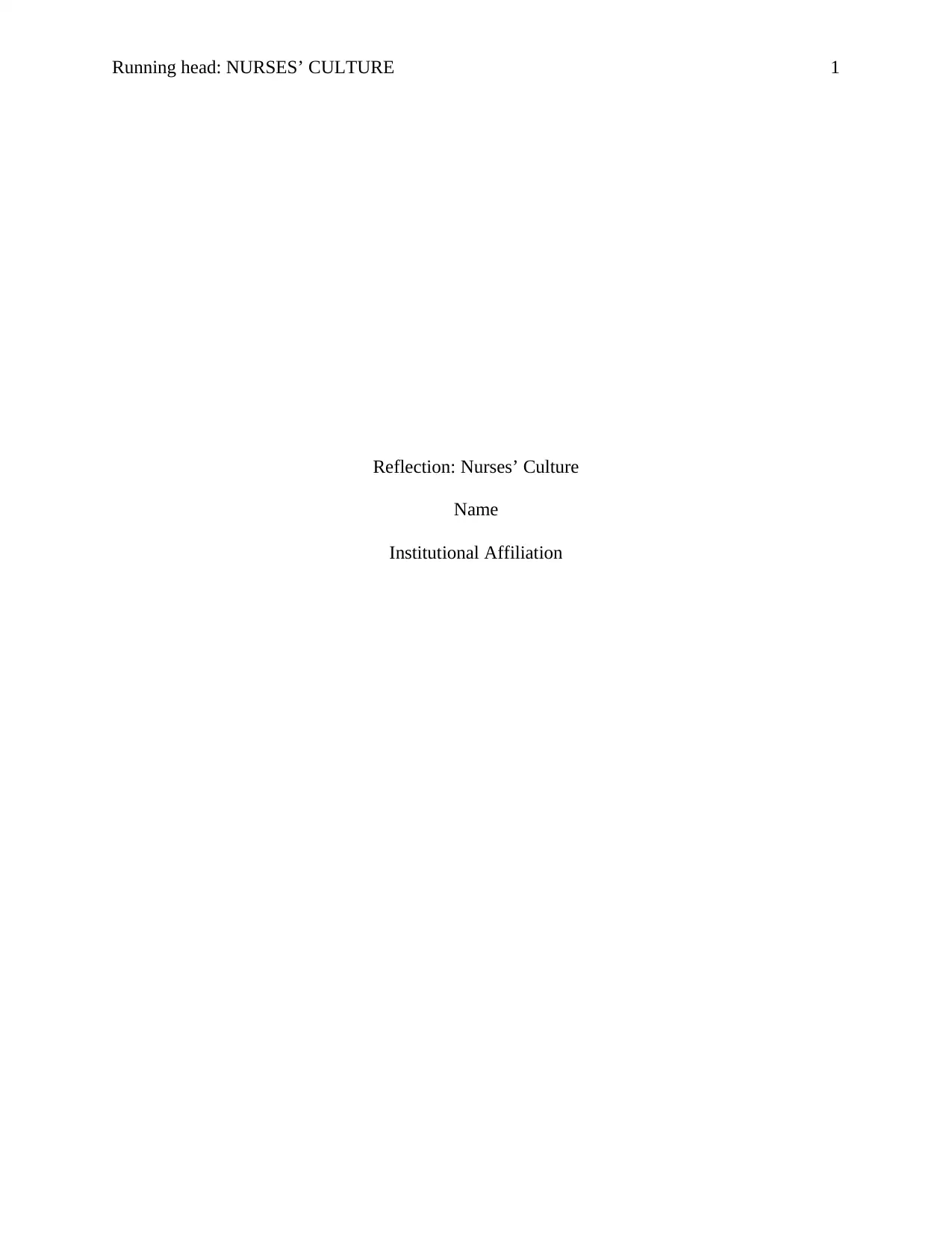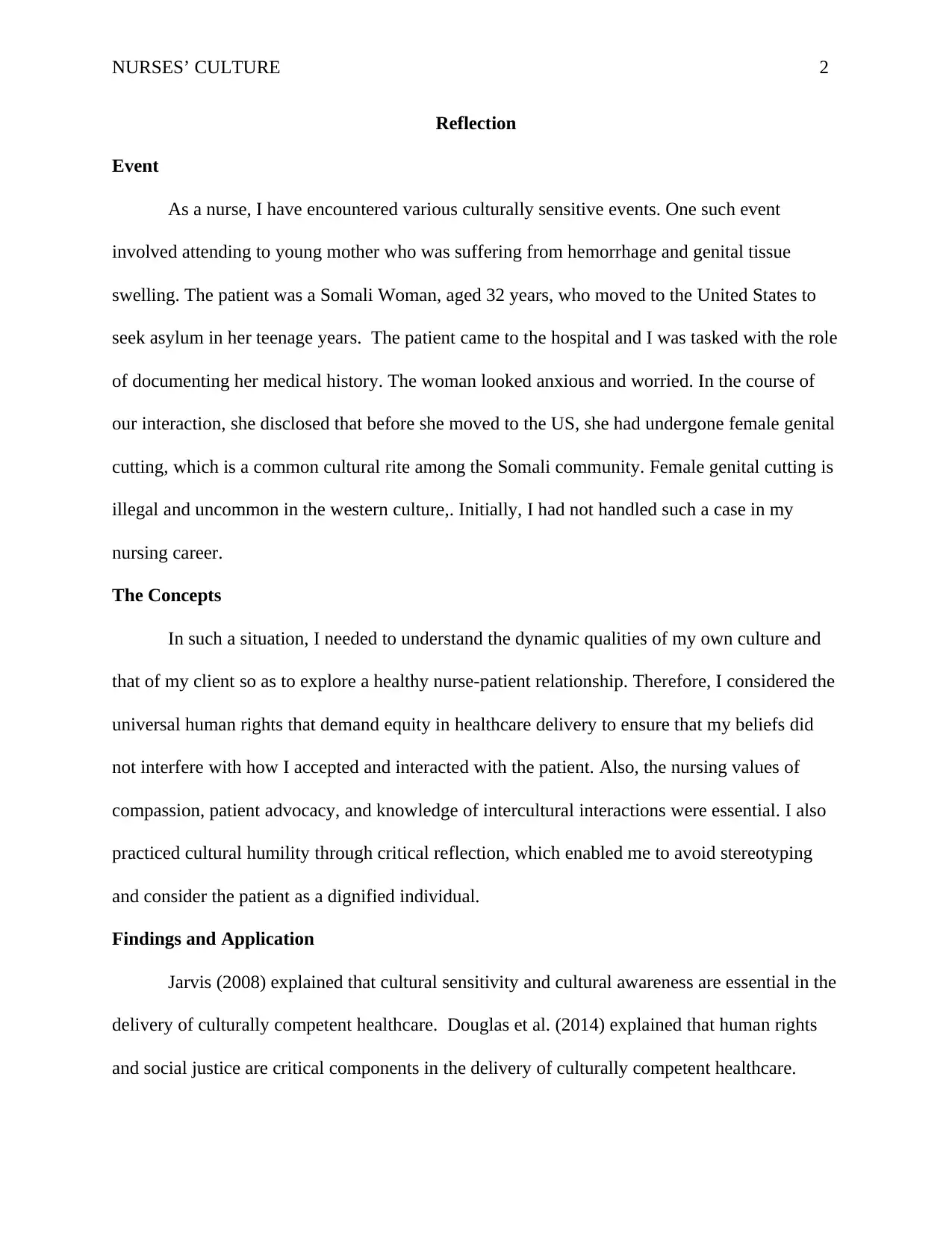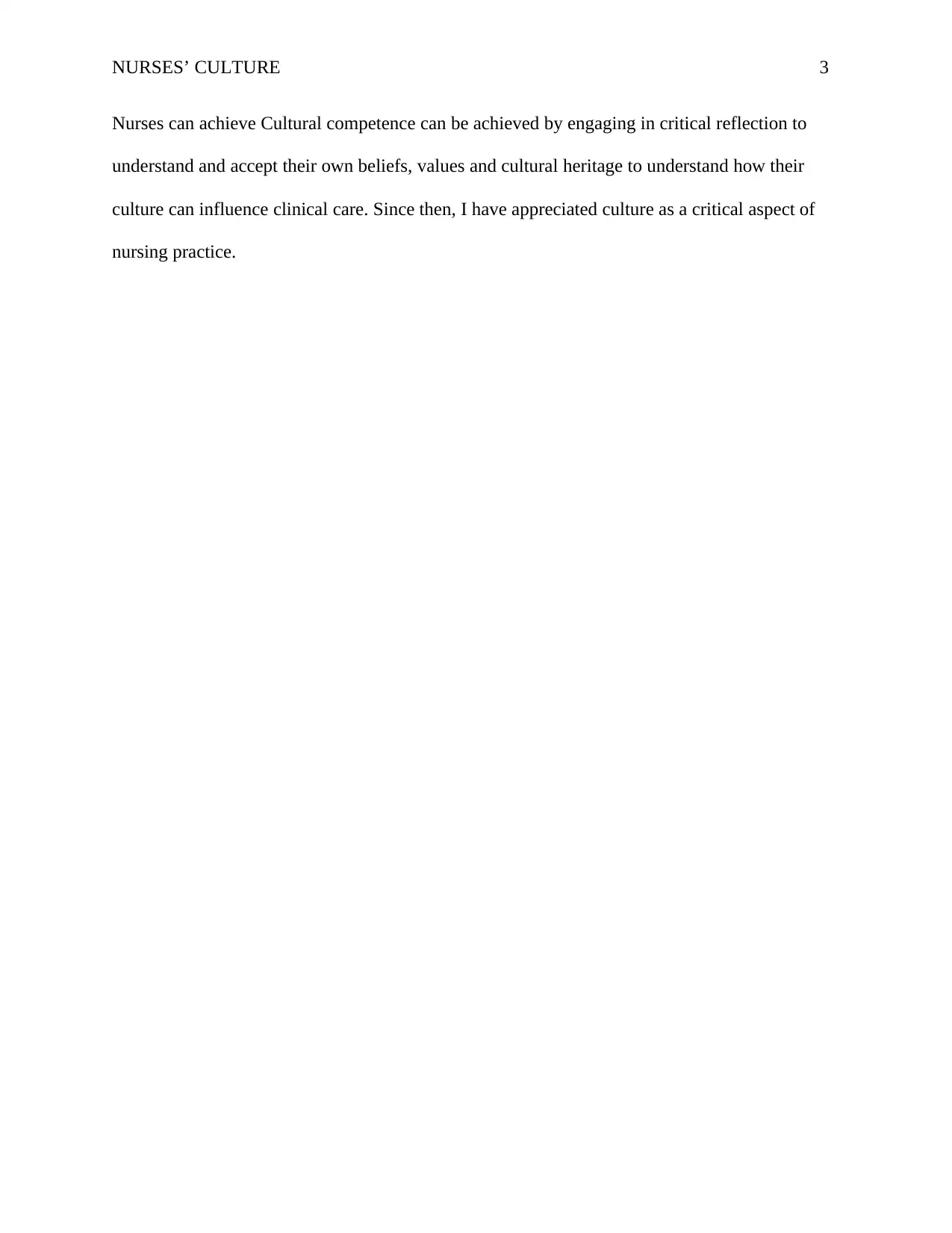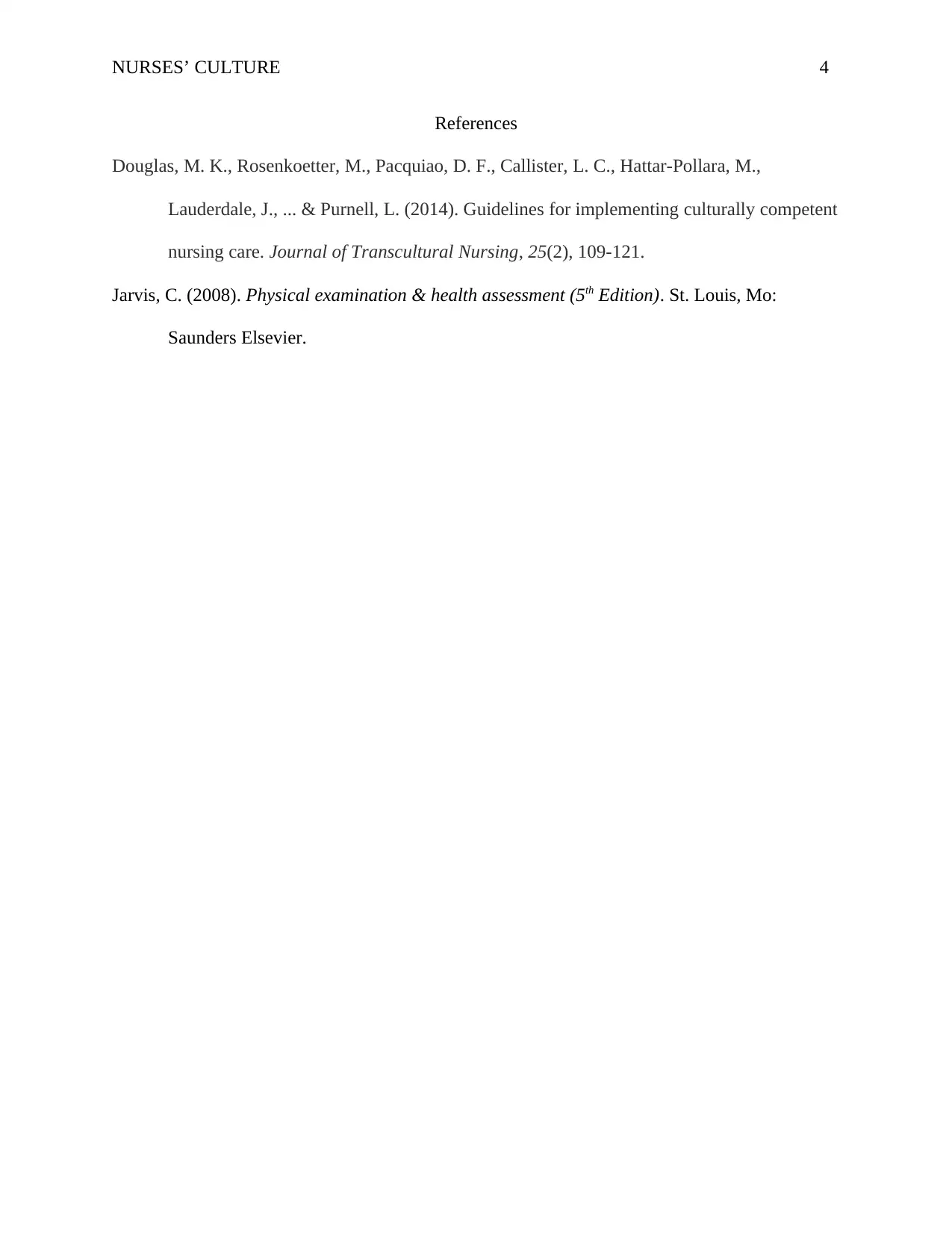Nurses' Culture: Impact on Patient Care and Therapeutic Relationships
VerifiedAdded on 2022/11/07
|4
|452
|1
Discussion Board Post
AI Summary
This discussion board post examines the impact of a nurse's culture on patient care, using a real-life scenario involving a patient who had undergone female genital cutting. The author reflects on how their own cultural beliefs and values influenced the care provided, and describes the steps taken to create a culturally sensitive therapeutic relationship. The post highlights the importance of cultural humility, critical reflection, and understanding the patient's background to ensure equitable healthcare delivery. It references relevant literature on cultural competence in nursing, emphasizing the need for nurses to be aware of their own cultural biases and how these can affect patient interactions. The author's experience underscores the importance of respecting patient rights and providing care that is both compassionate and culturally appropriate. This assignment is a valuable resource for nursing students seeking to understand and improve their cultural competence.
1 out of 4











![[object Object]](/_next/static/media/star-bottom.7253800d.svg)